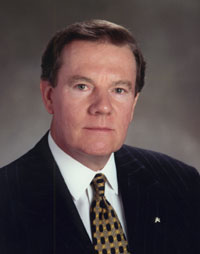Texas A&M System Regents Honor Long-time Regent Phil Adams

 BRYAN-COLLEGE STATION, Texas — The Texas A&M University Board of Regents on Thursday honored one of its own, Phil Adams ’71, for his 18 years of service on the board.
BRYAN-COLLEGE STATION, Texas — The Texas A&M University Board of Regents on Thursday honored one of its own, Phil Adams ’71, for his 18 years of service on the board.
Adams served with distinction for three six-year terms as one of the longest serving members of the Board of Regents in the last 20 years, having been appointed by Governor Rick Perry in 2001 and 2009 and reappointed in 2015 by Governor Greg Abbott.
Randy Brooks of San Angelo will take Adams’ position on the Board.
During his tenure, Adams played a significant role in the growth of the Texas A&M System while serving on numerous board committees and as Vice Chairman of the Board from 2011 to 2013 and as Chairman of the Board from 2013 to 2015.
During Adams’ time on the board, student enrollment across the System has grown to more than 151,000; the System’s research expenditures topped $1 billion a year in 2019; and the Regents oversaw a historic construction boom during the past nine years. Among the projects was the $485 million renovation of Kyle Field, a $550 million medical complex adjacent to the Texas Medical Center in Houston and the creation of the RELLIS Campus in Bryan, which has become a research home for the Army Futures Command and several System agencies.
Adams, who lives in Bryan, is owner and president of Phil Adams Company, which provides insurance products and services to businesses and individuals throughout Texas.
About The Texas A&M University System
The Texas A&M University System is one of the largest systems of higher education in the nation with a budget of $6.3 billion. The System is a statewide network of 11 universities; a comprehensive health science center; eight state agencies, including the Texas Division of Emergency Management; and the RELLIS Campus. The Texas A&M System educates more than 151,000 students and makes more than 22 million additional educational contacts through service and outreach programs each year. System-wide, research and development expenditures exceeded $1 billion in FY 2019 and helped drive the state’s economy.